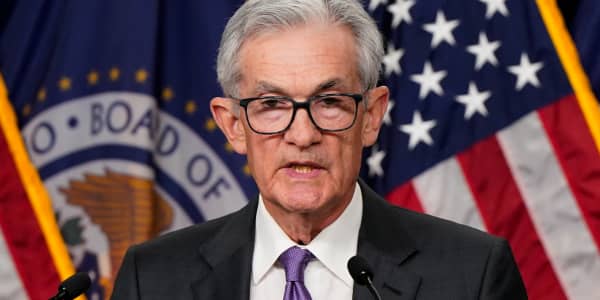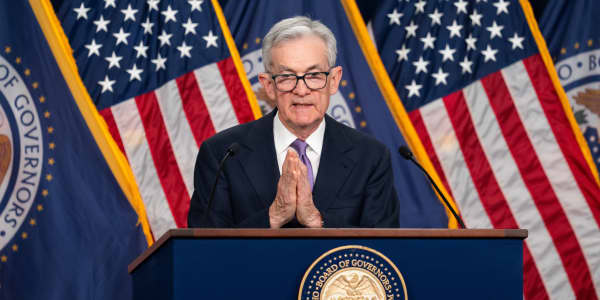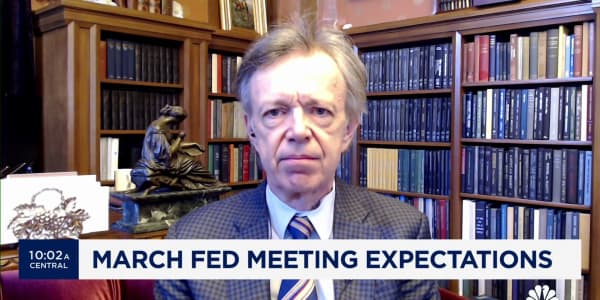Wall Street fears negative interest rates — the latest tool used by central banks to stimulate growth and prop up inflation — will create more problems than they will solve, according to the latest CNBC Fed Survey.
Fully 70 percent of the 42 professional economists, money managers and investment strategists surveyed said negative rates should not be used. Only 18 percent support the unconventional policy, in which a central bank charges banks for keeping money on deposit.
"Negative interest rates represent a genie that should be put back in the bottle," said Lynn Reaser of Point Loma Nazarene University. "The transmission channels are not working and are in fact backfiring."
Reaser noted that after the Bank of Japan in February became the latest to adopt negative interest rates, the value of the yen rose against the dollar and bank stocks took a hit. "Pressure on bank profits is stifling borrowing," she said.
Some 63 percent of CNBC's survey respondents said negative rates will not help stimulate economic growth and 54 percent expect they will not boost inflation.

But David Kotok of Cumberland Advisors believes both the central banks and the market have it wrong. "Market agents underestimate the power of NIRP on asset prices," Kotok said. But he added, "Central bankers overestimate NIRP power on growth and inflation."
Last week the European Central Bank cut its deposit rate further into negative territory to -0.40 percent. The central bank also announced an additional 20 billion euros ($22 billion) in monthly asset purchases and a new series of long-term refinancing operations to encourage bank lending. Survey respondents were evenly split over whether the ECB's new package of stimulus measures will have their intended effect of bringing inflation closer to policymakers' 2 percent inflation target.
Wells Fargo Investment Institute's Scott Wren said he's been telling clients "to not doubt the resolve of the world's major central banks to pull out all the stops in their attempt to push inflation and economic growth higher." He believes more is coming from central banks in the near term.
But Peter Boockvar of The Lindsey Group is pessimistic about the effect of these policies. "We've reached the end of the road, not in what central banks can do, but of the influence over the things they are trying to impact. The effectiveness of modern-day central bank activism is over."
About one-third of respondents said the ECB's policy measures will result in fewer rate hikes from the U.S. Federal Reserve, while more than half said the stimulus package will have no effect. Some on Wall Street argued a stronger euro might in fact make future rate hikes more likely.
"Central bankers are in the midst of an important pivot, ostensibly agreeing at the recent G-20 meeting in Shanghai to a ceasefire in their global currency war by shifting their focus away from negative interest rates toward credit easing," said Tony Crescenzi, executive vice president at Pimco. "This will not only aid credit instruments, it is likely to enable the Fed to implement additional interest rate hikes, albeit gradually, because it is contributing to a stabilization in global financial conditions."








